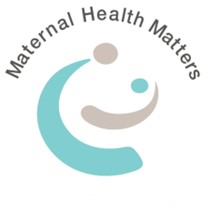Care is essential for all human beings. We all rely on care at different points in our lives.
But our current economic system completely ignores its value, especially the care provided by mothers.
By quantifying value of mothering in statistics, society may value mothering as nothing speaks louder than money in our society, especially to policy makers.
Currently mothers pay the cost, and this is the start of the gender pay gap. How we treat mothers goes to the core of our societal values.
- Care must be a collective concern and responsibility. It’s time to widen the discussion beyond academics and policymakers to include the general public, by translating the research and advocacy into ordinary language and make them as compelling as possible.
- Care for children must be considered as an investment and the time spent on raising children by parents, families and community also factored-in. In particular, Early Childhood Development (ECD) strategies and services have the transformative power to reduce poverty, inequity and violence, and thus build a strong foundation for peace and security, resilience, social justice and cohesion. Supporting mothers/parents/families for ECD is a high returns investment and is more important than ever.
- At the company level, promoting the wellbeing of people at work through simple policy and dialogue is also cost effective – it improves performance and also positively impacts life and health at home, especially for working mothers.
- Moving beyond GDP and profits as drivers of our economies has become a necessity. Among the hundreds of alternate indicators or dashboards, a few are important and could be identified as interesting for an organisation like MMM to focus upon and try to influence so that care and education are part of a new economic system. However, Time-Use Surveys, which provide key data on care and wellbeing, remain a bottleneck.
- The unequal distribution of unpaid care work is at the centre of the spiral of gender inequalities. “Building back better” must prioritize care and education, i.e. social infrastructure over physical infrastructure. Investing in care is sustainable, generates jobs and reduces the gender employment gap. Care should be mainstreamed in all policy-making.
- Care is at the heart of wellbeing. The governments of Iceland, New Zealand, Scotland and more recently Wales are showing us a way towards wellbeing economies, with new narratives and visions about how the economy can work to serve human and ecological wellbeing. Each country has developed its own framework for monitoring national progress in aligning economic policy with culture, value and wellbeing goals. These frameworks are the result of a participatory process to assess what matters to people.

